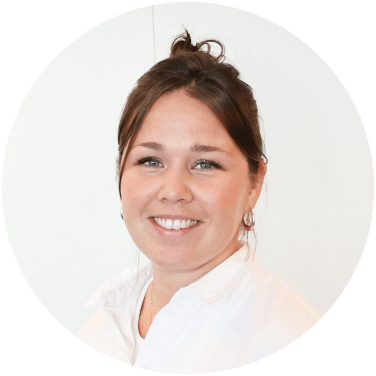Cholesterol. Good or bad cholesterol. HDL and LDL cholesterol. When it comes to cardiovascular diseases, these terms are often mentioned. But what exactly is cholesterol? What is bad and what is good cholesterol? And what about high cholesterol levels and their causes and symptoms? But the most important question is, of course: what can you do about high cholesterol? Below, we explain it and also provide some tips to lower your cholesterol.
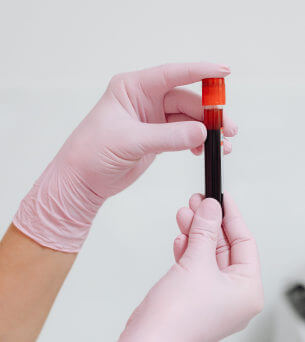
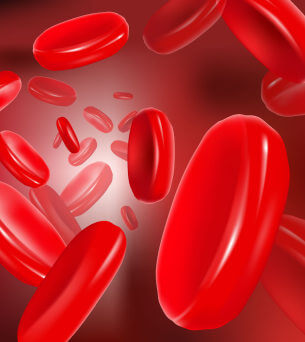
What is cholesterol?
Cholesterol has a bad reputation. That’s not entirely fair. Cholesterol is present in every healthy body. It is produced in the liver and plays a crucial role in hormone and bile production, as well as in lipid metabolism. By consuming food high in saturated fats, more cholesterol enters your body. That doesn’t have to be bad, as long as there is a healthy cholesterol level. There are two types of cholesterol that interact with each other. High-density lipoprotein (HDL) is also known as “good” cholesterol because it facilitates the removal of “bad” LDL (low-density lipoprotein) to your liver, where it is then broken down. When HDL and LDL are in balance, there’s no cause for concern.
What is high cholesterol?
However, in one-third of all Dutch people, good and bad cholesterol are out of balance. High cholesterol levels mean there is too much LDL cholesterol and/or too little HDL cholesterol in your blood. The ratios are then skewed. The consequence is that LDL cholesterol starts to accumulate against the walls of your blood vessels, forming plaque. When cholesterol, inflammatory cells, and calcium start to accumulate, it’s called atherosclerosis. This plaque can grow larger, partially blocking the vessel. Additionally, a part of the plaque may break off, causing narrowing of the vessel. In the worst case scenario, the clot completely blocks the vessel. In this case, symptoms occur, and treatment is necessary.
Healthy cholesterol values differ for men and women. These are the guidelines Dutch general practitioners use:
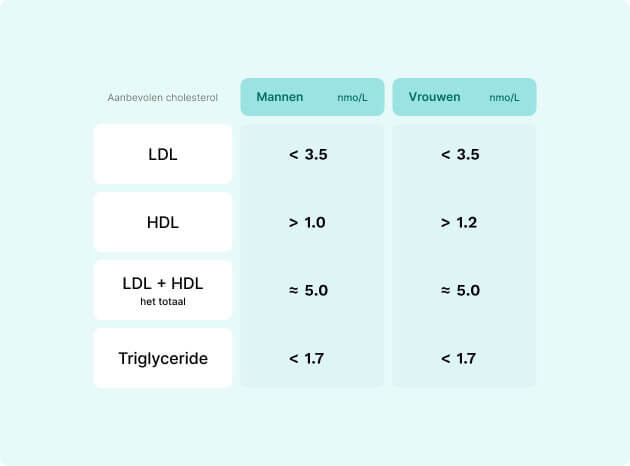
High cholesterol: Symptoms
Having high cholesterol levels and the formation of plaques doesn’t immediately result in symptoms. It can take years before there are significant enough narrowings in your blood vessels for you to notice. Symptoms of narrowed arteries include: shortness of breath during exertion, chest pain (during exertion), leg cramps, and fatigue. The frustrating part is that while you can halt atherosclerosis, for example, with a healthy lifestyle or medication, you can’t cure it. Therefore, it’s crucial to address it early and regularly test your cholesterol levels.

High cholesterol: Causes
High cholesterol can have various causes. A major cause is an unhealthy lifestyle, such as a diet rich in saturated and trans fats, lack of physical activity, overweight, and smoking. Genetics can also play a role, as well as certain medical conditions like diabetes and kidney diseases.
In some families, there’s a genetic condition called familial hypercholesterolemia (FH). This condition can cause (very) high cholesterol levels, necessitating medication. Underlying conditions such as hypothyroidism or kidney and liver diseases could also be contributing factors.


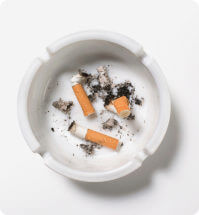
High cholesterol: Consequences
As mentioned earlier, high cholesterol can have serious consequences over time. Atherosclerosis and narrowing of arteries are terms you don’t want to hear from your doctor because your vascular system doesn’t heal from them.
Plaques in the vessel wall can become unstable and dislodge, partially or completely blocking a blood vessel. This can have severe consequences. A blocked blood vessel means that no blood (and oxygen) reaches the tissues. When this occurs in the arteries around the heart, it’s called a heart attack. When it happens in the brain, it’s called a stroke.
Gerelateerde tests


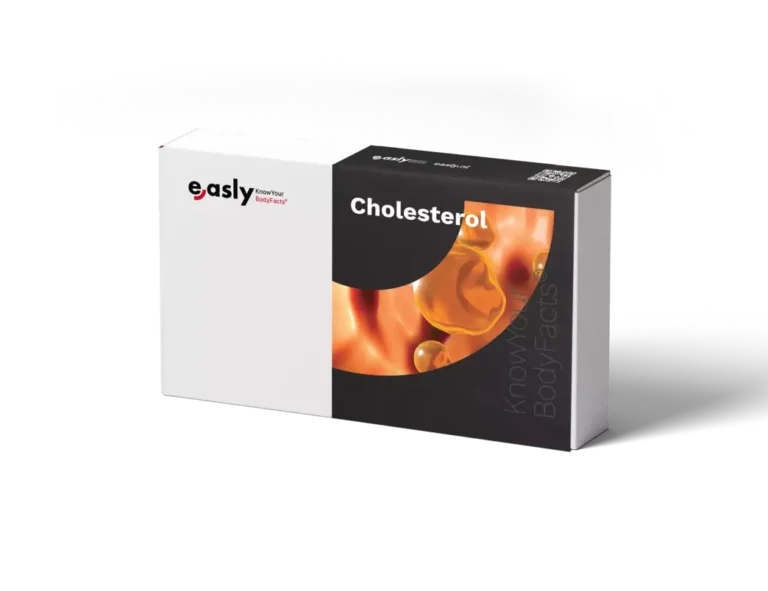
What to do with high cholesterol?
After testing—either with a home test or in the laboratory upon referral from your doctor—you’ve found out that your cholesterol levels are too high. That’s unpleasant news. What steps can you take yourself to lower your cholesterol? If you’ve conducted a home test, it’s always wise to first seek advice from a doctor, for example, to rule out any hereditary causes. Additionally, you can take matters into your own hands to lower your cholesterol. Here are a few tips:
- It all starts with a healthy lifestyle. Quitting smoking reduces your risk of cardiovascular disease. Additionally, aim to exercise for at least 20 to 30 minutes a day at moderate intensity. Consider activities like swimming, cycling, and walking. If you struggle to stay motivated, exercise with others or enlist the help of a coach.
- Healthy eating helps keep your blood balanced and prevents cholesterol-related issues. Choose less saturated fats and more unsaturated fats. Try to avoid processed foods as much as possible and add as little salt as possible to your meals. Cooking your own meals is always a healthier choice than eating out. Focus on whole grain products. Eat fatty fish weekly and limit red meat. The Nutrition Center has developed the Wheel of Five as a guide for a healthy diet.
- Are you overweight? Is your BMI so high that it indicates obesity? This is a risk factor. In this case, try to lose weight. Your doctor can advise you on what a healthy weight is for you. Weight loss begins with a healthy diet and adequate exercise. A dietitian can help you lose weight.
If your cholesterol is very high—more than >300 mg/dl—or if there are hereditary causes, diabetes, or previous cardiovascular problems, your doctor may decide to prescribe cholesterol-lowering medications. There are various medications that can lower cholesterol levels in the blood. Statins are the most commonly prescribed and inhibit the production of cholesterol in the liver. Cholesterol medication can cause side effects. Therefore, always consult with your doctor to determine if medication is necessary and what the best option is for you.




Taking medication does not mean that healthy eating and exercise are no longer important. With medication, you artificially reduce cholesterol in your blood. A healthy lifestyle addresses the root causes of the problem.
Prevent problems, take a self-test
Cholesterol can build up silently in your blood vessels over a period of years. You may not notice much. To prevent problems, it’s wise to conduct preventive examinations. With the results in hand, you’ll know exactly where you stand and whether you need medical advice or need to make lifestyle changes. Easly has developed a handy cholesterol self-test that allows you to easily test your cholesterol at home and view the results online within a few days. You’ll also receive immediate medical interpretation and advice from our doctors.





